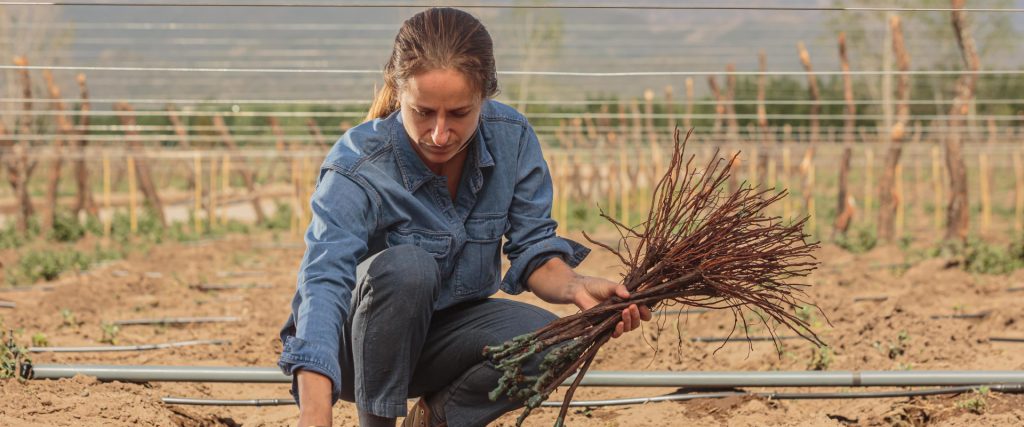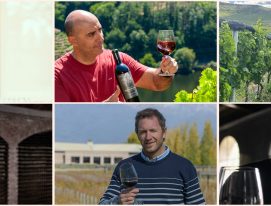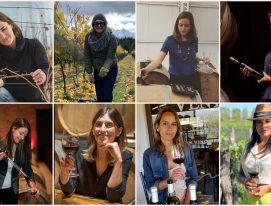Boasting one of the most celebrated surnames in world viticulture, Saskia de Rothschild is a big fan of Argentina and today, in partnership with Laura Catena, runs Bodegas CARO, a project founded in 1999 by Nicolás Catena and her father Baron Eric de Rothschild.
Head of the family business, Barons de Rothschild Lafite, since 2016, Saskia de Rothschild runs all of the group’s wineries in France, Chile, China and Argentina, with a long-term vision and strong commitment to sustainability. “We feel it is our obligation to think of the future of wine. We are a wine family, we live for wine,” Saskia De Rothschild said at the planting of a new vineyard Bodegas CARO are developing in San Pablo, Uco Valley, at a height of 4600 feet. It’s a magical setting and the perfect place to talk about the state of the Argentine wine industry with Saskia De Rothschild.
Interview with Saskia de Rothschild
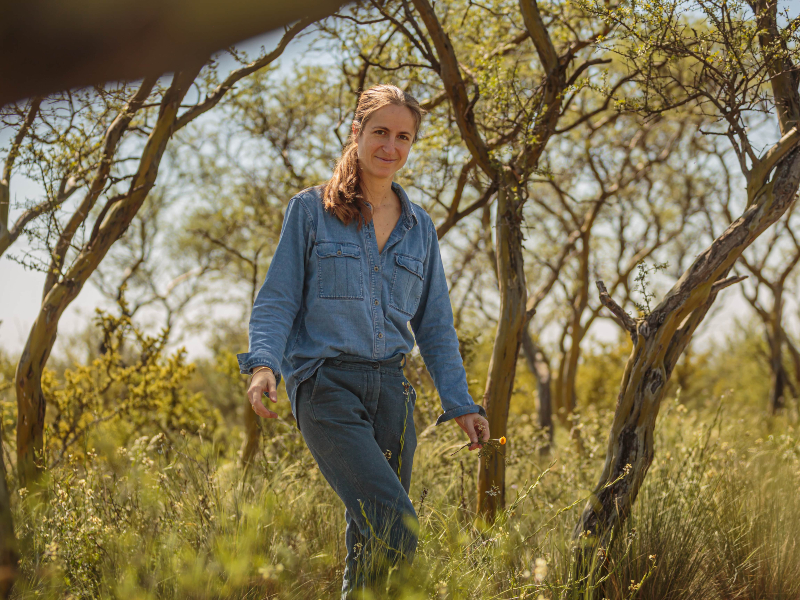
Back in 1999, your father was enthused by the idea of discovering and developing high end wines in a new region in Mendoza. What is it that excites you about the project?
Two things give me faith in the future. First, the distinctive terroirs that are available, especially the one we’ve found in San Pablo, which will help us to make wines with greater freshness and to commit to the future of varieties such as Malbec, Cabernet Franc and Chardonnay.
Secondly, there’s the spirit of the contemporary wine scene in Argentina, and the creativity I’m witnessing. In spite of all the challenges the country is facing, I’ve watched as our teams and everyone else I’ve been lucky enough to meet in region are able to keep implementing their ideas.
In France we see the art of winemaking as the union of poetry and science. What I love about Argentina is that they’re more poets than scientists. Argentine wines today are very authentic.
What changes have you and Laura Catena implemented since you took over at Bodegas CARO?
The most important part was defining the identity of winery’s wines. We took it upon ourselves to decide who we are and what we want to be in the future and for that to happen, we set up a team. Outstanding wineries work as a team, and we needed that. Now we have a wonderful winery, an incredible team and the vineyard we’ve been looking for for years. We see Bodegas CARO flowing naturally now, without having to force anything, heading in the direction we want to go.
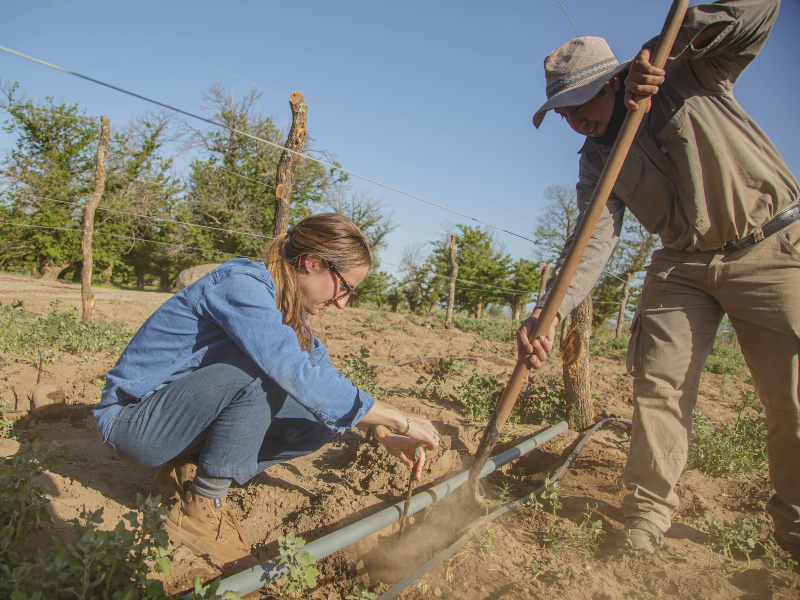
CARO always opted for blends when in Argentina everyone was producing Malbec. Today, Argentine wine is famous for more than a single variety. Do you think that will continue to be the path for the winery?
We love Malbec, but even more so in a blend. We think that our new vineyard will help us to take our wines to the next level but also develop new concepts. For example, we’re making a Chardonnay, which without a doubt is a variety that can achieve exceptional quality in Mendoza. We’ve seen that with the wines being produced by Catena Zapata in Gualtallary.
In Chablis, DBR Lafite have purchased the William Favre winery, one of the best producers of Chardonnay in Burgundy, and that will certainly provide us with more tools and expertise with which to make great whites in San Pablo. Cabernet Franc is another wine that I love in Argentina and we’ll be growing it at this vineyard as well.
I then encountered other varieties that produce wonderful expressions of the terroir in different areas of the country. The important thing is for the wines not to hide their essence.
Your management of Domaine Baron de Rothschild stands out for its strong commitment to the environment and sustainability. How has the process been across the group and what plans do you have for Argentina?
Recently, Bodegas CARO, like all of the DBR Lafite wineries earned B-Corp certification, thus reinforcing our conservation mission. That means that all our decisions must be based on more than economic criteria. We’ve adjusted our business statutes to reflect our long-term commitment to making a positive impact on society and the environment through our operations. Finca Desiré in San Pablo will be managed organically from the beginning, seeking to maintain a balance between the native forest and the vines. That is something we want to achieve with all our vineyards.
Of the 60 hectares at the vineyard, 25 will have its native vegetation preserved, 5 biological corridors shall be maintained across the property from east to west and north to south and natural spaces and reservoirs shall be joined with neighboring properties to maintain the agri-ecological balance.
The San Pablo Geographic Indication can mitigate the risk of water scarcity as rainfall is between 250 and 500 mm a year. It’s one of the most fresh, cloudy and damp terroirs in the Uco Valley.
We feel that we have found the ideal terroir for a great Argentine wine and to be present at the planting allows us to approach the project in the most responsible way possible, keeping the balance of the local ecosystem in mind.
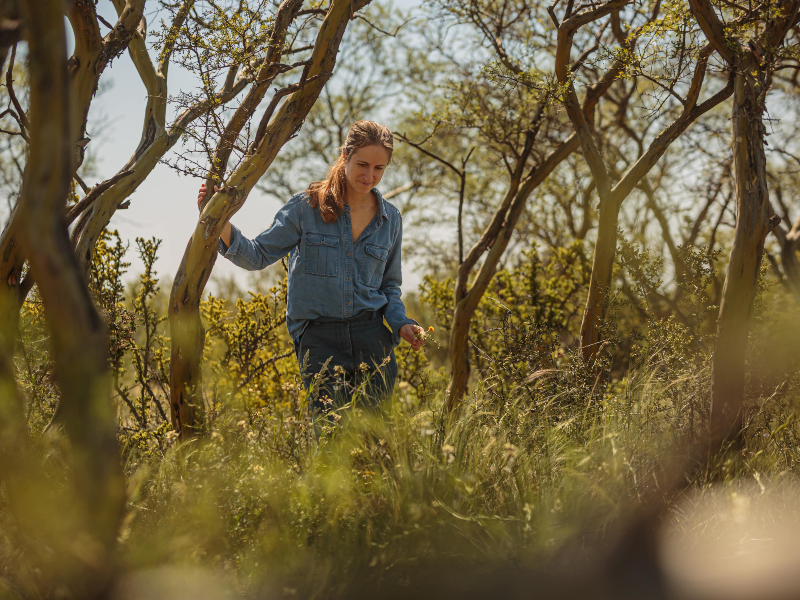
What aspects do you believe that Argentina needs to work on to grow in the largest markets?
Argentina should be an example for other regions: they understood that their wines need to tell stories, to embody them, to have a soul. Today, the country’s brand is very strong in terms of both wine and wine tourism. Another strength is that local consumption is the backbone of the business.
There’s no doubt that a commitment to sustainability is something that we should continue working on, thinking of future generations, although it’s not so easy amid the current economic crisis.
We need to experiment with and try things, to talk to one another to improve together, to collaborate with other wineries and universities in areas related to viticulture such as protecting vegetable material for the future.
What do you think are the main interests and concerns of wine consumers today and how should wineries react to them?
People are looking for delicious wines that tell stories with sincerity and quality. Wines that are more “drinkable” with less “wow factor” and more persistence.
The wine market is going to change and get more challenging for everyone, not just Argentina. People are drinking less and there is also a change in how much they’re willing to pay for a bottle. The wines are better than ever and competition will be tough. We need to be very alert to what we’re offering the public and to make better and better wines with nobility, sincerity and transparency. We have a duty to offer unrepeatable experiences. Consumers are growing more and more curious, they want to know everything and get more for their money.
In our case, we’re always on our toes and constantly seeking to improve. We never rest easy, we keep on studying and experimenting. We’re never done.

